



Suggested citation: Aggarwal, Dhruvak, Nhilce Esquivel, Robin Hocquet, Kristiina Martin, Carol Mungo, Anisha Nazareth, Jaee Nikam, Javan Odenyo, Bhuvan Ravindran, L. S. Kurinji, Zoha Shawoo and Kohei Yamada. 2022. Charting a Youth Vision for a Just and Sustainable Future. Stockholm: Stockholm Environment Institute and Council on Energy, Environment and Water.
This report, in collaboration with Stockholm Environment Institute, takes into account the latest science, identifies policy gaps, and studies systemic challenges to formulate a concrete vision for a healthy planet for all by 2030. It also makes policy suggestions for accelerating implementation and overcoming roadblocks in pursuit of this vision. The report integrates findings from a global online survey conducted of over 900 young people (18-30 years old) from 91 countries, with a focus on following a consultative process for charting a youth vision and subsequent policy suggestions. It provides concrete goals for the global community on zero loss of nature; universal education and healthcare; halving emissions by 2030; zero poverty and inequality; global citizenship; moving from GDP to well-being; diplomacy for the collective good; and climate education for all.
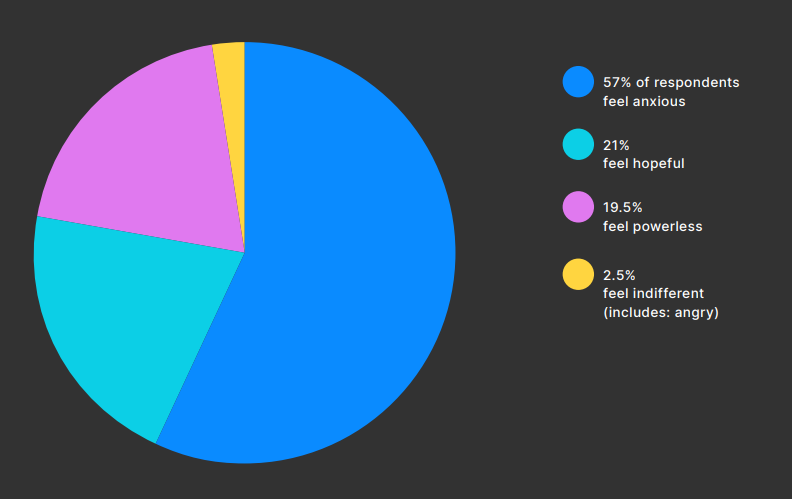
Source: The youth survey
Note: Some respondents gave more than one answer. The 4 pre-selected answers were Anxious, Hopeful, Powerless, Indifferent. Respondents could add other emotions, Angry is the one that came up most often (2% of the respondents).
We, the authors of this report, were not yet born when nations first met in Stockholm, 50 years ago, to take responsibility for protecting and improving the environment while ensuring equity of human development.
The better world envisioned then has not come to pass. It is now our world, and the next 50 years is our future. This report articulates a vision for our shared future that captures the aspiration, determination and solidarity of young people, to realize a healthy planet for all.
We have taken into account the latest science, identified policy gaps, and studied systemic challenges to formulate a concrete vision for a healthy planet for all by 2030. We also make policy suggestions for accelerating implementation and overcoming roadblocks in pursuit of this vision. The report integrates findings from a global online survey conducted of 1050 young people (18-30 years old) from 89 countries, with a focus on following a consultative process for charting a youth vision and subsequent policy suggestions.
The youth of today have inherited a world shaped by the governance systems and national policies established over the past 50 years, in which we face intertwined crises of the state of our planet and extreme inequality among people and societies. Since 1972 the human population and its total carbon emissions have more than doubled. We have entered an era where humans have become a driving force that changes the planet, as we exceed our ecological footprint as a species.
We realize that this generation and the next ones will bear the brunt of climate change impacts. More than half of the respondents to the survey for this report said that they feel anxiety due to climate change.
The COVID-19 pandemic has shown the vulnerability of our economies, shed light on the costs of delayed action, and clearly has had disproportionate impacts on different groups of people, both economically and socially. It taught us the importance of cooperation through global solidarity; the importance of acknowledging crises at its early states to avoid costly delays of inaction; as well as the importance of eliminating social and economic inequalities that deepen, and are deepened by, crises.
These lessons can be applied to the intertwined challenges we face, with implications for all as well as specifically for youth today.
Our hopes are for a better future, one perhaps similar in many ways to that envisioned half a century ago.
Our vision is four parts, based on solidarity among all people, living with nature, equality for all, and health and well-being for all. Achieving these ends requires systemic change at a massive scale; the systems in which we live need to address and remove inequality from many perspectives – including intergenerationally, geographically, related to gender, ethnicity, racism and colonialism.
Rather than economic growth, we find that community focused living, education and health are appropriate metrics of the prosperity of a country. It should further be measured by its ‘natural capital’ like the quality of its air, soil and water; biodiversity and integrity of ecosystems and land use, as countries with functional environmental ecosystems are more resilient to the impacts of climate change and can provide higher standards of living to their inhabitants.
Our vision also requires hearing the voices of youth in the decisions taken now that will lay the groundwork for our future. Half of the global population is under age 30. Youth currently lack adequate voice in economic and political matters, and yet they – we – have led change for equality and a better world. We can capitalize most obviously on the global youth movement against climate change – which needs to be amplified. The solutions and actions young people bring to the table can be shared and scaled up. We need actions now, in this decade, to set our course for the next 50 years.
We believe that regulatory bodies have not taken enough action during the COVID-19 pandemic, to secure economic and social security and well-being; a similar statement can be made for other crises humanity has faced. Actions taken by governments at all levels and by other sectors could bring our world closer to the youth vision of a healthy planet with dignity and equality for all.
Youth need more opportunities to engage in different forums and voice their concerns. Youth need to be involved in policy development processes, and youth voices legitimized in mainstream policymaking. Youth need greater decision-making, financial and political power to become the leaders of tomorrow that transform the status quo.
For this to happen, governance needs to be reformed to ensure better youth inclusivity, interconnectedness and accountability, with education and capacity building of youth playing a key role. Policymakers need to accelerate youth representation in major political forums, but also go beyond that to actively act on and implement youth recommendations, as well as giving youth the power to do so themselves.
We envision a world in which the development of societies centres on happiness, well-being and solidarity. Recognizing and encouraging youth as agents of change is one way to reach that world. Our youth vision requires we all work together for a more inclusive and sustainable future.
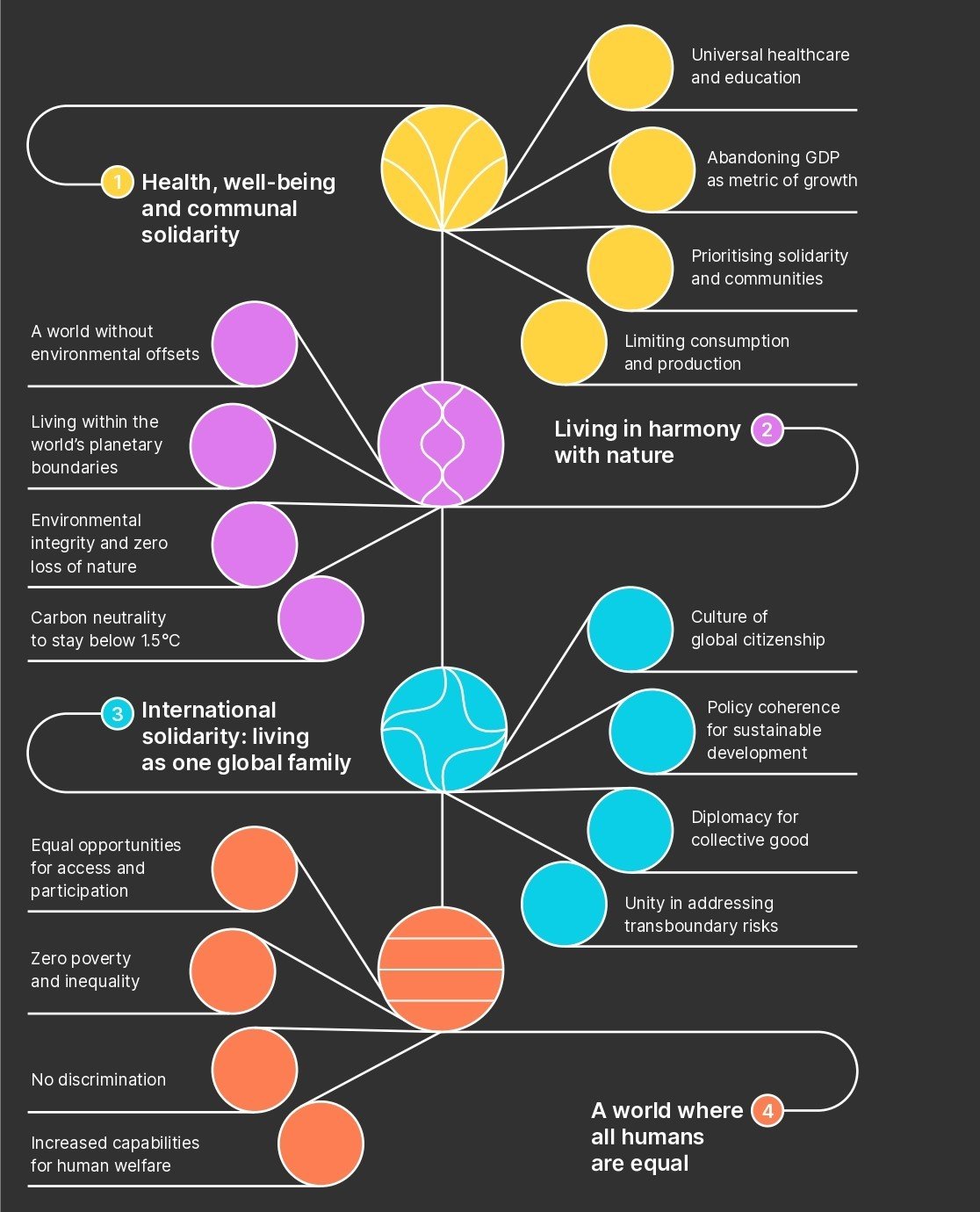
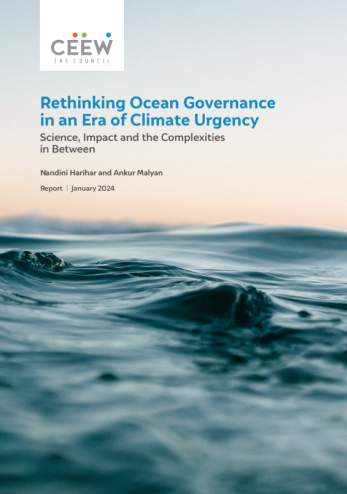
Rethinking Ocean Governance in an Era of Climate Urgency
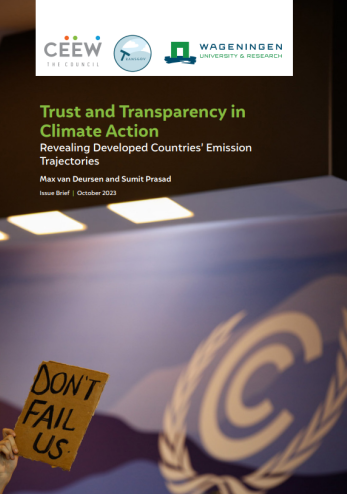
Trust and Transparency in Climate Action
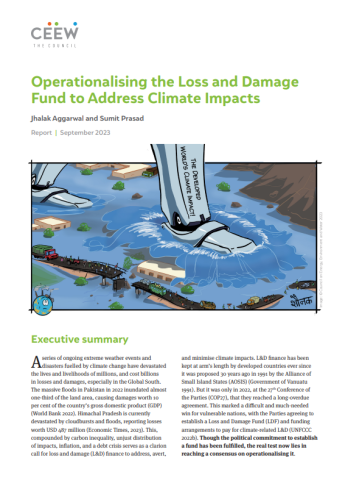
Operationalising the Loss and Damage Fund to Address Climate Impacts
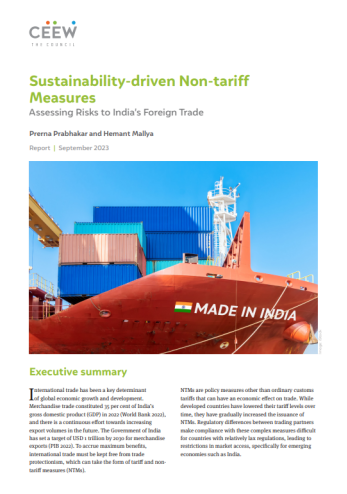
Sustainability-driven Non-tariff Measures